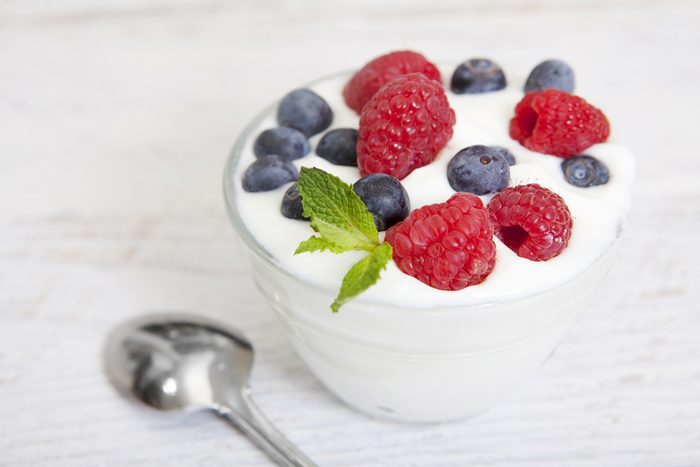
Yogurt
We tend to opt for our favourite comfort foods, whether it’s sweet or salty, to help us feel better when stressed. While these foods may give us temporary relief, we typically find ourselves back in stress mode once that bag of chips is empty. Rethink your comfort foods and try these 15 foods that lower stress.
Yogurt is one of the foods that lower stress. Here’s why: It is rich in probiotics, which are known as “good” bacteria that live in our gut. Although the role that our microbiome has on stress is not completely understood, small studies have shown that regular use of probiotics may help reduce perceived stress levels and physical stress response.
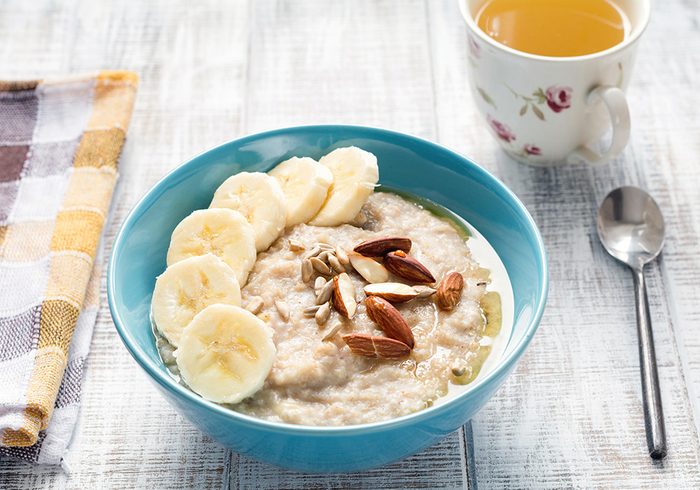
Oatmeal
There is a reason we tend to crave sweets during stressful times. Eating carbohydrate-rich food promotes the production of serotonin, a feel-good neurotransmitter. But sweets will not help lower stress. Instead go for whole grains, such as oatmeal for breakfast, rather than sugary cereal or pastries. Oatmeal will promote the same mood boost while also giving you long-lasting energy to deal with your stressful day.
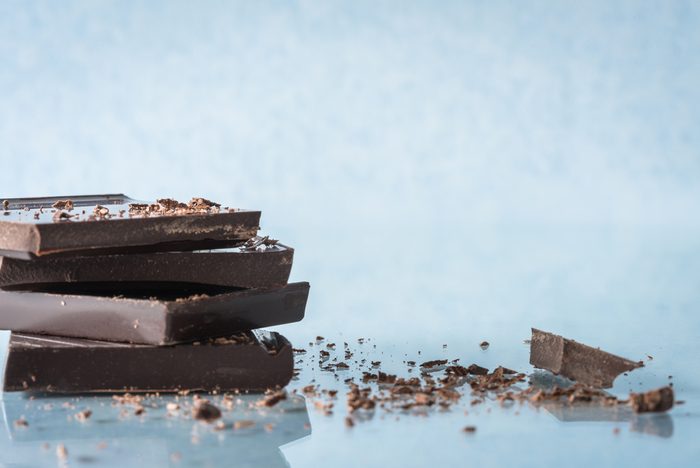
Dark Chocolate
The flavonoid content in dark chocolate is thought to have a stress-reducing effect. It may potentially reduce mental fatigue and improve cognitive performance. Add dark chocolate shavings to yogurt or have a square of a dark chocolate bar (at least 70 percent cacao) on its own when a craving hits.
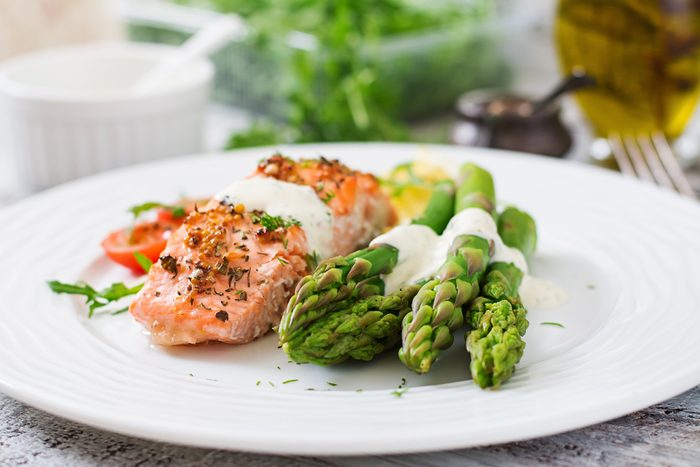
Salmon
Fatty fish such as salmon is a food that lowers stress. That’s because it is a great source of omega-3 fatty acids, which have anti-inflammatory properties and are thought to have a positive impact on mental health, including stress. Enjoy canned salmon in salads or sandwiches as a convenient protein option.
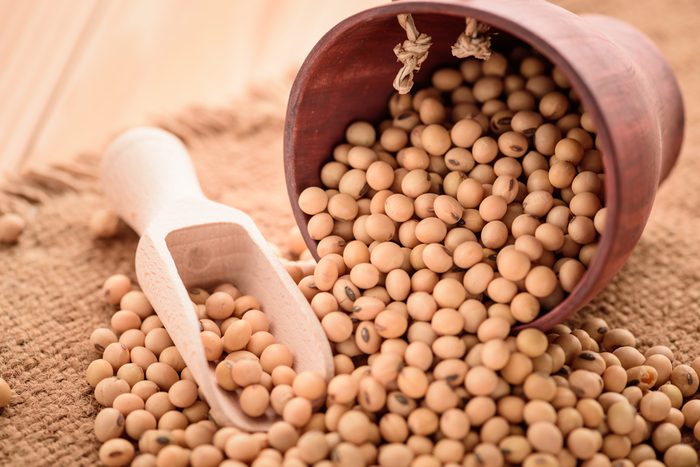
Soybeans
Soybeans are a good source of two amino acids, tyrosine and tryptophan, which help produce the feel good neurotransmitters serotonin and dopamine. Include roasted soybeans in a trail mix for a simple stress-free snack.
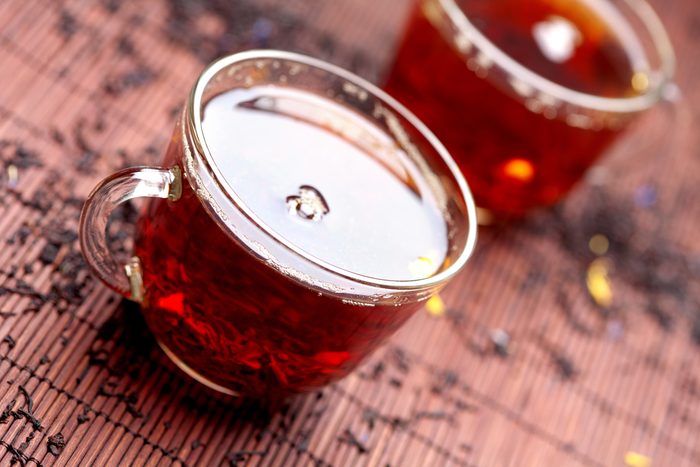
Black tea
For centuries, tea drinking has been associated with lower levels of stress as well as relaxation. One study found that six weeks of drinking four cups of black tea may lead to lower levels of the stress hormone, cortisol. The subjects, young healthy adults, reported better relaxation compared to placebo.
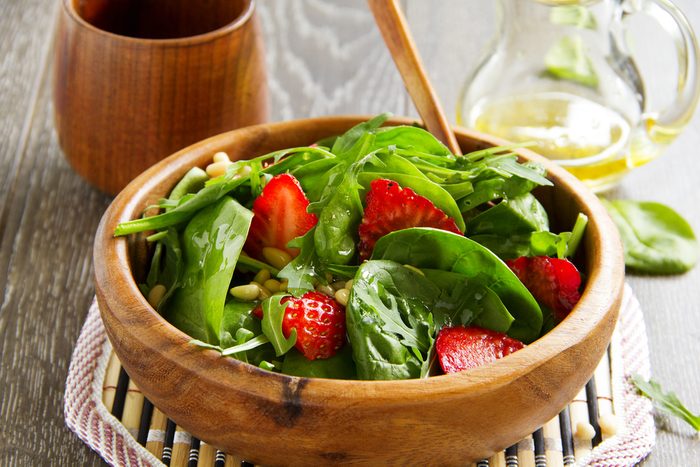
Green leafy vegetables
Green leafy vegetables, such as spinach, kale and arugula, are high in folate, a B vitamin that is important for producing mood boosting neurotransmitters. Low intake of folate has also been associated with higher rates of stress. Add a handful of the green stuff to smoothies, use as a base for your salad, or stir into soups and stews.
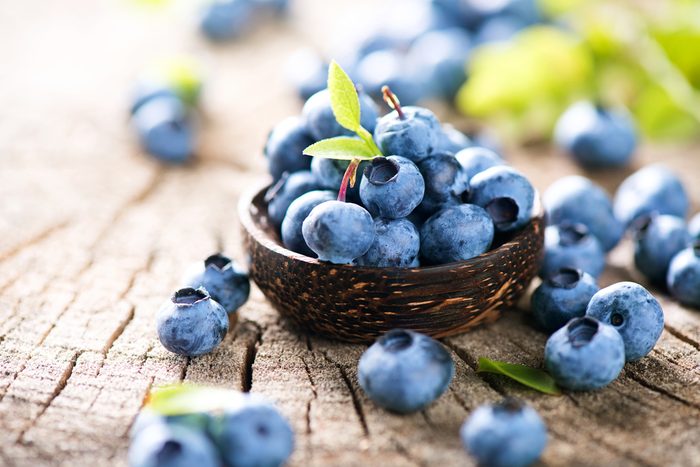
Blueberries
Polyphenols, antioxidant compounds found abundantly in blueberries, have been associated with lower rates of depression and anxiety. It is suggested that polyphenols may reduce stress due to their anti-inflammatory properties and effect on the central nervous system. Pair blueberries with nuts or seeds for a balanced afternoon snack.
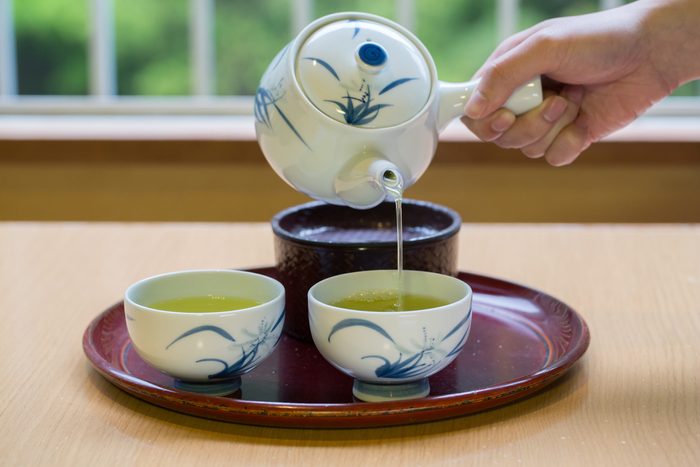
Green tea
Green tea contains L-theanine, an amino acid associated with relaxation. A small study in Japan found that undergraduate students who took L-theanine reported less stress and lower physiological stress markers compared to placebo. So, instead of a 3 p.m. coffee, drink a green tea to help get you through your afternoon.
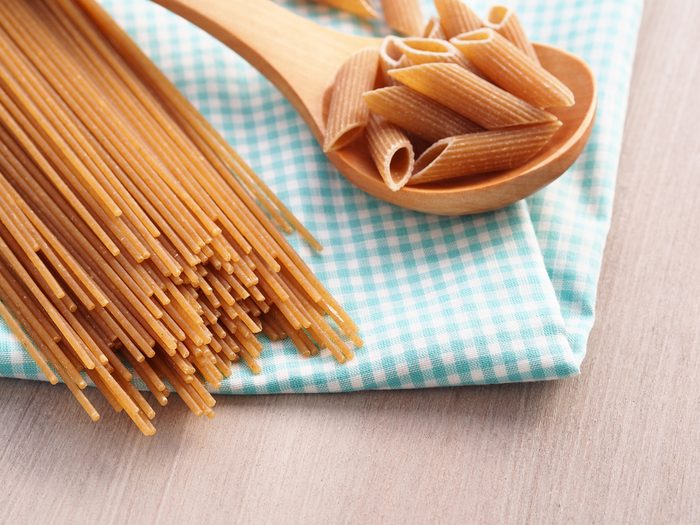
Whole grains
Whole grains such as bread, pasta and quinoa are a great source of B vitamins, which are thought to support cognitive function. Some research suggests that eating grains is linked to less personal strain levels related to work stress. Aim every day for at least 50 percent of your grains to be whole grain.
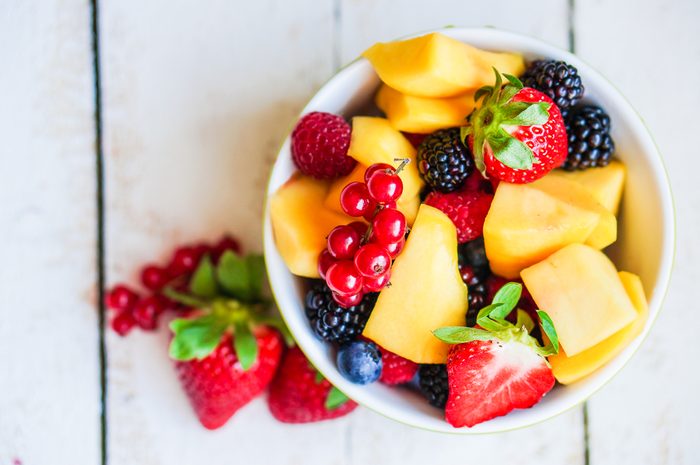
Fruits and vegetables
We know fruits and vegetables are a necessary part of a healthy diet, but they are also foods that lower stress. And studies have shown that a higher intake of these plant foods may lower odds of suffering from distress. Aim for two to three servings of fruit daily. As for how many servings of vegetables you should eat each day, fill half your plate with non-starchy veggies at each meal to get enough.
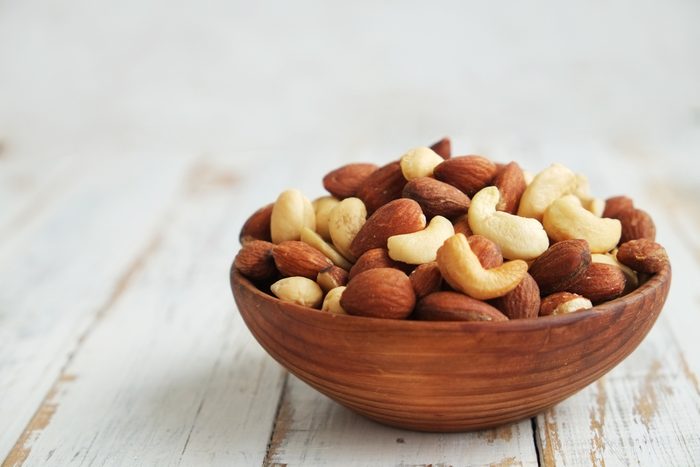
Nuts and Seeds
Nuts and seeds are a source of magnesium, which is a mineral involved in many biochemical processes. It is thought to have a role in supporting mental health. Crunching on nuts and seeds can also help with stress by releasing pressure in your jaw.
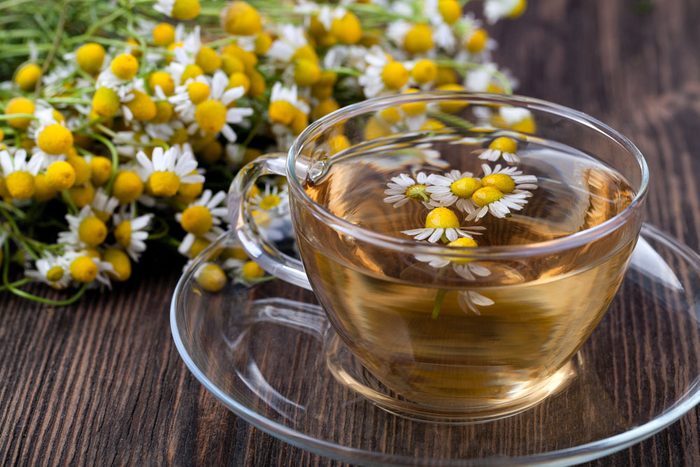
Chamomile Tea
Chamomile tea is largely associated with being more relaxed and has been linked to reduced symptoms of anxiety. Try a cup in the evening before bed.
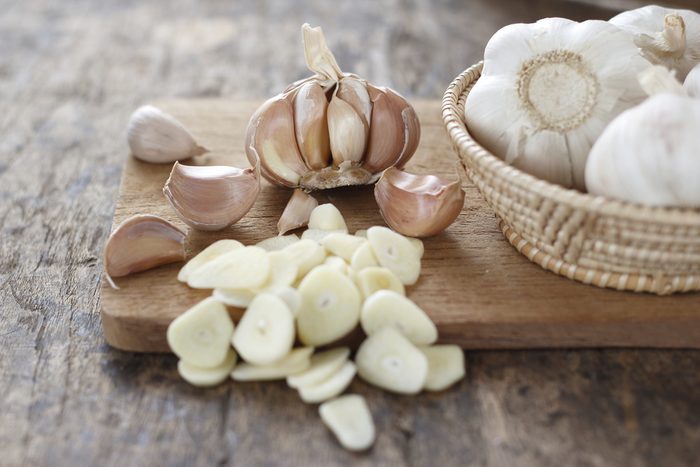
Garlic
Garlic contains 12 percent fructans by weight. Fructans are non-digestible fibres known as prebiotics. They act as fuel for the bacteria in our gut and are thought to have a role in reducing stress response, although research is limited. Add garlic to a stir fry or to pasta to help maintain a healthy microbiome.
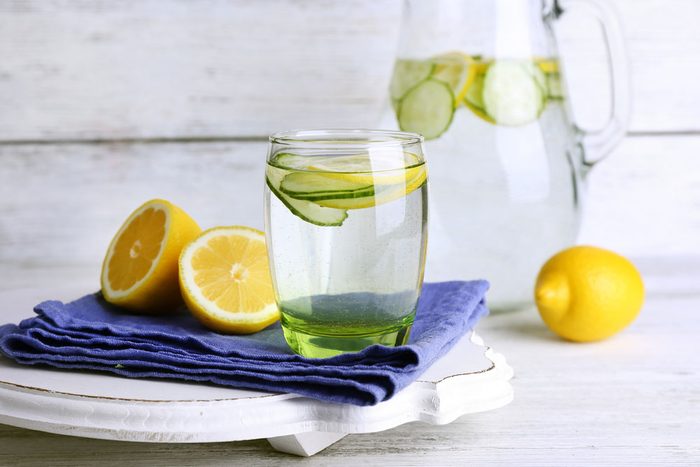
Water
This underrated beverage may also help us get through stressful situations. Dehydration has been associated with a decreased feeling of alertness, difficulty concentrating and an increased feeling of tension. Don’t like the taste? Infuse water with lemon or cucumber to make it more flavourful. Keep it at your desk to stay mentally sharp.
Brittany Raftis is a registered dietitian and certified personal trainer, specializing in sport and fitness nutrition, weight management, and chronic disease. She is passionate about inspiring others to reach their nutrition and fitness goals through group and individual coaching.
